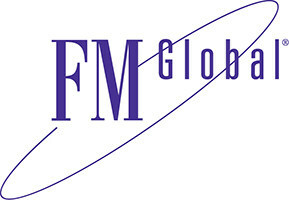Companies With Strong Physical Risk Management Deliver More Stable Earnings, New Research from FM Global Shows
"FM Global Risk/Earnings Ratio Study" of more than 500 multinational corporations finds clear correlation between good physical loss prevention and lower earnings volatility
JOHNSTON, R.I., June 10 /PRNewswire/ -- Businesses with stronger risk management practices than their peers enjoy more stable financial performance over the long term, including much lower earnings volatility, according to the findings of a new study of more than 500 large multinational companies.
Commissioned by FM Global, one of the world's largest commercial property insurers, and conducted by Oxford Metrica, an independent strategic advisor to FORTUNE 500 companies, the Risk/Earnings Ratio Study found that companies with best-practice property risk management programs produced earnings that were, on average, 40 percent less volatile than companies with less advanced risk management practices.
The study, available for download at www.fmglobal.com/study, presents evidence of a clear correlation between earnings volatility and physical risk management. Businesses with strong physical risk management programs produced earnings that fluctuated an average of 18 percent, compared with an average earnings volatility of more than 30 percent among companies with weak physical risk management practices.
"The key take-away from this study is clear -- good risk management practices have the potential to improve earnings stability, which is a key driver of shareholder value," said Ruud Bosman, vice chair, FM Global.
"At the same time, companies that may be considering cutting back on property risk management resources would be well-advised to consider the potentially negative bottom-line implications of such a move," added Dr. Deborah Pretty, the Oxford Metrica principal who led the research effort.
The study findings are further supported by FM Global's internal quantitative research. According to extensive property loss data analyzed by FM Global, the average risk of property loss for companies with weak physical risk management practices is 20 times greater than for those with strong physical risk management practices. Companies with inferior practices were more than twice as likely to experience a property loss and related business disruption.
Large businesses with weak risk management practices, compared with those with strong risk management programs, experience on average:
- 55 times greater risk of property loss due to fire
- Fire losses that are four times more costly -- an average US$3.2 million per loss, compared with US$725,000
- 29 times greater risk of property loss caused by hurricanes, earthquakes and other natural hazards
- Natural catastrophe losses that are seven times more costly -- an average of US$3.4 million per loss compared with US$478,000
"The research findings make sense," said Scott Morrison, senior vice president and chief financial officer of Ball Corporation, a large, publicly traded supplier of metal and plastic consumer packaging products. "The more volatility you take out of your performance the greater the reliability of earnings, which translates into a more consistent valuation by Wall Street. Likewise, the more resources a company earmarks toward reducing physical risk, the higher the opportunity for enhanced shareholder value."
The study compared the physical risk management practices of 520 large multinational companies with more than US$1 billion in annual revenue over a period of three years. Each company's risk management practices were scored on a 1-to-100 point scale using a proprietary tool developed by FM Global that helps companies quantify and manage physical risk.
"The best kind of physical risk management not only stops bad things from happening, but also has positive bottom line benefits," Bosman added. "As a company that has been analyzing data to help protect our clients' physical property since our company was founded 175 years ago, companies now have evidence they can use that directly correlates good risk management with shareholder value. Particularly important in today's challenging market environment, earnings stability and business continuity can offer businesses a clear competitive advantage."
About FM Global
For 175 years, many of the world's largest organizations have turned to FM Global (www.fmglobal.com) to develop cost-effective property insurance and engineering solutions to protect their business operations from fire, natural disasters and other types of property risk. The risk quality metrics used as the basis for the research and statistics were derived from RiskMark®, a fact-based analytics tool developed by FM Global that produces data to help users precisely understand the risk of major property loss at each facility, the potential business impact and the best solutions to address related vulnerabilities.
About Oxford Metrica
Oxford Metrica (www.oxfordmetrica.com) is an independent research and analytics firm specializing in corporate reputation and international investments. Oxford Metrica has been recognized as a leading adviser in managing reputation recovery from crisis, in evaluating the benefits of establishing an international shareholder base, and in the provision of analytics on hedge fund performance and asset allocation strategy.
SOURCE FM Global
WANT YOUR COMPANY'S NEWS FEATURED ON PRNEWSWIRE.COM?
Newsrooms &
Influencers
Digital Media
Outlets
Journalists
Opted In




Share this article